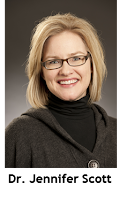- Conference Theme:
The theme for the conference is “A University without Walls.” Union Institute and University has a tradition of breaking down breaking down barriers—social, cultural, educational and economic. We want to continue that journey into the twenty-first century as we move into a more virtual environment. What does it mean to be a “University without Walls” in today's online world?
- Guest Speaker:
Our guest speaker this year is Dr. Bernard Bull who serves at Concordia University Wisconsin as Assistant Vice President of Academics, Associate Professor of Education, and Director/Chair of the M.S. in Educational Design & Technology. He is deeply involved in online pedagogical strategies and innovative approaches to education in the digital world. You can find out more about Dr. Bernard Bull at his website.
- Schedule:
Dr. Elden Golden and the Faculty Council are working closely
with the Center for Teaching and Learning to develop a more detailed,
forth-coming schedule. Below is the general structure for this virtual event.
Monday
2:00-5:00 PM EST
–Union Institute and University Institutional Vision and Practice
–Dr. Nelson Soto, VPAA
–Guest Speaker, Dr. Bernard Bull
–Union Institute and University Institutional Vision and Practice
–Dr. Nelson Soto, VPAA
–Guest Speaker, Dr. Bernard Bull
Tuesday 7:00-9:00 PM EST
–Professional Development
Wednesday 7:00-9:00 PM EST
–Professional Development
–Professional Development
Thursday 2:00-5:00 PM EST
–UI&U Institutional Vision and Practice
–President Sublett, Closing Remarks
–UI&U Institutional Vision and Practice
–President Sublett, Closing Remarks
- Regional Center Events:
The faculty meeting is virtual this year, but that does not
mean that individual centers should not invite their local faculty members and
graduate students to come together and participate in the conference as a
group.
I strongly urge you to take the opportunity to use the faculty
meeting as a community-building event for your centers. Please talk with your
center deans to arrange an afternoon or a couple of evenings where any of the
local faculty and graduate students could come together for food and fellowship
as we all log in and connect in this important event.
-
Center for Teaching and Learning:
The
Center for Teaching and Learning (CT&L) will play a major role in this
year’s Virtual Faculty Meeting. In addition to video-recording professional
development presentations by some of our faculty, the CT&L is establishing
a new, online video training library. This online library will house the
recorded training sessions from the faculty meeting for future reference. The
CT&L will then continue to provide updates to this library, with short
videos featuring faculty members with teaching tips and professional
development workshops on a monthly basis, through the year.






